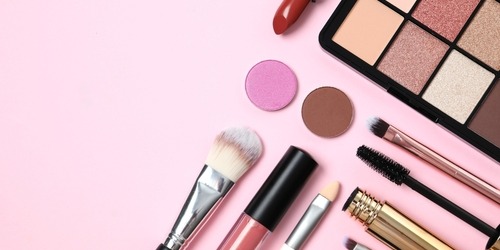SGIE Report 2024/25: Halal cosmetics thrives, with Asian brands standing tall
Muslim consumer spending on cosmetics has grown at a steady pace, rising from $84 billion in 2022 to $87 billion in 2023, with projections to reach $118 billion by 2028, according to the State of the Global Islamic Economy Report 2024/25.
The spending underscores the persistent global interest in halal-certified beauty products. From a dollar-and-cent perspective, the halal cosmetics recorded eight deals across mergers and acquisitions, private equity or venture capital funding in 2023/2024, down from 10 recorded during the previous period.
Asian brands, GCC markets steal spotlight
East Asian cosmetics brands, particularly from China and South Korea, are significantly influencing the global halal cosmetics market.
Chinese brands like SHEGLAM and retail giants such as KKV Group are rapidly expanding their presence in Muslim markets. Meanwhile, South Korean companies are enhancing their halal credentials through strategic partnerships and certifications to strengthen their foothold in the Muslim market, supported by recent free trade agreements with the GCC.
Saudi Arabia is emerging as a prominent hub for beauty and fragrance investments, hosting IPOs such as Al Majed for Oud and online cosmetics retailer Nice One.
Funding activity, including strategic stakes acquired by Jadwa Investment and the Public Investment Fund’s backing of halal cosmetics companies, reflect the largest Arab economy’s strategic focus on the halal cosmetics sector, according to the SGIE report.
Social, sustainability scores
The industry continues its transition towards sustainability, with companies investing in circular beauty practices.
Indonesia's ERHA introduced the country’s first Cosmetics Reverse Vending Machine to tackle packaging waste. Global players like L'Oréal and Kiehl's are enhancing their supply chains and sustainability initiatives to alleviate their environmental impact and meet rising consumer demand for sustainable practices.
OIC nations have intensified regulatory actions and enforcement to combat counterfeit cosmetics.
Authorities across the UAE, Saudi Arabia, Nigeria, and Indonesia demonstrate increased vigilance against illicit products, while updated regulatory frameworks in countries like Malaysia, Indonesia, Thailand, and the EU are enhancing transparency, quality, and safety standards for cosmetics.
Social impacts, such as consumer boycotts, particularly related to geopolitical issues, continue shaping purchasing behavior within Muslim markets. Brands such as UAE-based Magically Holistic have seen significant sales increases as consumers seek ethical alternatives.
Advanced technologies drive innovation across the sector, with artificial intelligence (AI) helping enhance personalization and product differentiation. Companies like Cosmax and Unilever are developing AI-based solutions to improve consumer experience, while brands such as Wardah leverage AI for personalized beauty recommendations.
Overall, the continued evolution in consumer preferences, investment dynamics, regulatory enhancements, and technological advancements positions the halal cosmetics sector for sustained growth and increased global integration.
To download a copy of the State of the Global Islamic Economy Report 2024/25, click here.

Salaam Gateway